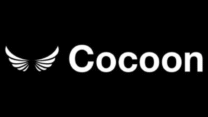
Why an ISO 14001 Lead Auditor Course Could Skyrocket Your Consulting Career
Ever feel like you’re just scratching the surface of what you could achieve as an environmental management system (EMS) consultant? If you’re helping organizations implement ISO 14001 but want to take your expertise to the next level, a Lead Auditor course might be your golden ticket. This isn’t just about learning to audit—it’s about becoming a trusted leader who can steer companies toward sustainability and compliance with confidence. For consultants and EMS implementers like you, this training is a chance to stand out in a crowded field. Let’s break it down and see why it’s worth your time.
What’s ISO 14001 All About?
ISO 14001 is the global standard for environmental management systems. It’s a roadmap for organizations—think factories, offices, or even retail chains—to reduce their environmental footprint. Less waste, cleaner processes, and fewer regulatory headaches. Sounds straightforward, right? But here’s the catch: making it work requires sharp oversight, and that’s where lead auditors shine. They don’t just check compliance; they guide teams, spot gaps, and drive real change.
Why does this matter to you? As a consultant or EMS implementer, you’re already in the trenches, helping companies set up these systems. Becoming a lead auditor gives you the skills to not just build but also verify those systems, making you indispensable.
What’s in the Course? The Nuts and Bolts
So, what’s the deal with an ISO 14001 Lead Auditor course? It’s not just a lecture marathon (though you’ll need to stay awake for some theory). These courses are designed to be practical, blending technical know-how with leadership chops. Here’s what you’ll typically cover:
- Mastering the Standard: You’ll dig into ISO 14001’s clauses—everything from environmental policy to compliance obligations.
- Audit Leadership: Learn to plan, manage, and lead audits, including coordinating teams and handling tricky stakeholders.
- Risk-Based Thinking: Spot environmental risks, like excessive water use or emissions, and prioritize fixes that make a difference.
- Communication and Reporting: Craft clear, actionable audit reports and deliver feedback that gets results, not pushback.
Why This Training Is a Game-Changer for Consultants
You’re already helping organizations implement ISO 14001, so you know the standard’s value. But a Lead Auditor certification? That’s a whole new level of credibility. Here’s why it’s a must:
- You’ll See the Big Picture—and Own It
As an EMS implementer, you’re focused on building systems. As a lead auditor, you take it further, ensuring those systems actually work. You’ll connect the dots across departments—energy, waste, compliance—and spot issues others miss. It’s like being a chef who not only cooks but also runs the kitchen, making sure every dish is perfect.
- Leadership Sets You Apart
Leading an audit isn’t just about technical skills; it’s about steering a team through complex processes. You’ll learn to manage conflicts, motivate staff, and present findings to skeptical executives. That’s the kind of leadership that makes clients trust you—and keep coming back.
- The Market Is Hungry for Your Skills
Sustainability is no longer optional. With regulations tightening—think the EU’s Green Deal or the EPA’s stricter emissions rules—companies need auditors who can keep them compliant. The International Organization for Standardization noted a 10% rise in ISO 14001 certifications globally in 2024. That means demand for lead auditors is soaring, with freelance rates often hitting $75-$200 per hour.
- You’ll Be a One-Stop Shop
Clients love consultants who can do it all—implement and audit. This certification lets you offer both, making you a go-to resource for organizations. Whether you’re working with a small manufacturer or a global retailer, your skills will apply across industries.
How to Pick the Right Course
Not every course is worth your investment. You want one that’s practical, respected, and tailored to your needs as a consultant. Here’s how to choose:
- Accreditation Counts: Go for courses certified by IRCA or Exemplar Global. These credentials ensure your certification is recognized worldwide.
- Hands-On Learning: Look for programs with mock audits, case studies, or role-plays. You want to practice leading, not just studying.
- Experienced Instructors: Trainers with real-world auditing experience bring the standard to life. Check their credentials on the provider’s website.
- Flexible Formats: Juggling clients? Online options from providers like BSI or Intertek let you learn without pausing your work.
Pro tip: Check reviews on LinkedIn or industry forums like the Environmental Leader group. Better yet, ask providers for a syllabus or sample materials. You’re betting on your future—make it a smart bet.
A Quick Tangent: The Green Wave Is Unstoppable
You know what’s wild? The push for sustainability is reshaping business. In 2025, clients aren’t just worried about profits—they’re under pressure from regulators, consumers, and even investors to go green. The EU’s pushing for net-zero by 2050, and companies worldwide are scrambling to comply. Ever notice how many brands now brag about their “eco-friendly” practices? That’s not just marketing—it’s survival. As a lead auditor, you’re not just riding this wave; you’re helping steer it.
What Happens After Certification?
Once you’ve got that ISO 14001 Lead Auditor certification, the world opens up. Here’s how you can put it to work:
- Expand Your Consulting Services: Offer auditing alongside implementation, making you a one-stop shop for clients. This can boost your rates and client retention.
- Lead High-Profile Audits: Take charge of complex EMS audits for big players, from manufacturers to multinationals.
- Career Pivot: Use this as a stepping stone to roles like sustainability director or compliance manager. It’s a natural progression.
And don’t sleep on networking. Courses connect you with other consultants, auditors, and industry pros. I’ve seen people land major clients just by swapping ideas during a coffee break. Those connections? Pure gold.
Challenges You’ll Face (And How to Conquer Them)
Auddine Let’s be honest—leading audits isn’t always smooth. You’ll hit some roadblocks, but they’re manageable:
- Dense Standards: ISO 14001 can feel like a jungle of jargon. Break it into chunks and practice explaining it in simple terms—it helps.
- Stakeholder Pushback: Audits can ruffle feathers. Build trust by being collaborative, not confrontational. Show teams how your work benefits them.
- Keeping Up: Environmental regulations change fast. Stay sharp with resources like GreenBiz or the ISO’s own updates.
It’s like learning a new dance—awkward at first, but you’ll find your rhythm.
Work-Life Balance: The Honest Truth
Auditing can be demanding—site visits, tight deadlines, and long hours. But it’s also rewarding. You’re not stuck behind a desk, and as a consultant, you can often set your own schedule. That flexibility lets you balance work with life, whether it’s family time or a quick getaway. Just plan smart and set boundaries.
Wrapping It Up: Your Next Step
So, what’s the takeaway? An ISO 14001 Lead Auditor course isn’t just a certification—it’s a career catalyst. It sharpens your skills, boosts your authority, and positions you as a leader in the booming sustainability field. For consultants and EMS implementers, it’s a chance to offer more value and stand out in a competitive market.
Ready to jump in? Research accredited courses from providers like SGS, BSI, or Bureau Veritas. Compare formats, costs, and reviews. Reach out to certified auditors on LinkedIn for real-world insights. Honestly, the green revolution needs leaders like you. Are you ready to lead the charge?






